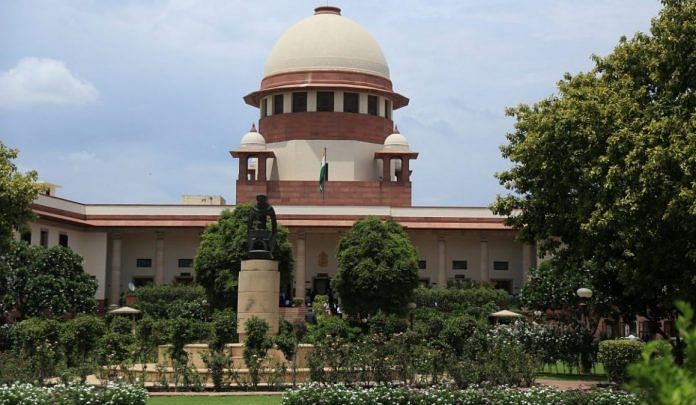The Supreme Court, however, ruled in favour of a 6-11.30 pm window for public viewing of dances at dance bars in Maharashtra.
New Delhi: The Supreme Court Thursday relaxed some of the conditions set by the Maharashtra government for the functioning of dance bars, spelling relief for hotel and restaurant owners and dancers who had approached the top court against the three-year-old rules.
“From 2005 till date not a single licence was given. There may be regulations but that should not amount to total prohibition,” a two-judge bench, comprising Justice Ashok Sikri and Justice Ashok Bhushan, said.
Among other things, the court quashed the rule mandating CCTV cameras on the premises of dance bars, introduced under the Maharashtra Prohibition of Obscene Dance in Hotels, Restaurants and Bar Rooms and Protection of Dignity of Women (Working therein) Act, 2016.
The court added that patrons could give dancers tips, but prohibited the flashing of coins and currency (notes). It allowed the serving of alcohol at these establishments, and said it was “unreasonable” to set a threshold for the minimum distance between dance bars and schools/religious institutions. The Maharashtra government had said there should be no dance bars within a kilometre of such institutions.
The court ruled against a division of spaces at such establishments. This means that the bars may not carve out a separate “family area” on the premises. However, it upheld the five-and-a-half-hour window, from 6 pm to 11.30 pm, set by Maharashtra for public viewing of dances at the bars.
The top court had, on 30 August last year, reserved its verdict on a batch of petitions filed by hotel and restaurant owners, along with women employed in dance bars, challenging the new restrictions imposed by the Maharashtra government on the licensing and functioning of dance bars in the state.
According to the amended Maharashtra Prohibition of Obscene Dance in Hotels, Restaurants and Bar Rooms and Protection of Dignity of Women (Working therein) Act, 2016, bars and restaurants were directed to install CCTV cameras on the premises, as well as restrict the window of operations.
What Supreme Court said
During the course of the arguments, the bench had observed that there was “total moral policing” in Maharashtra.
The court noted that the definitions of obscenity were changing with time, pointing out that the law and society now recognised live-in relationships, something that was not acceptable earlier.
“Earlier, film-makers used to show two flowers or two birds chirping instead of showing kiss or love-making scenes in movies, but now the time has changed,” the bench said.
It further sought to know why dance bars were not operational despite court orders and why the state was not issuing licences to those who applied.
Also read: Brash Delhi vs laidback Bengaluru: How India’s party scene changes with the zone
What Maharashtra said
Representing the state, senior advocate Shekhar Naphade said the perception of society at large had not changed all that much, adding that traditional families would still not allow their children to visit places like dance bars.
Maharashtra said the amended law was meant to regulate the licensing and functioning of dance bars.
In a reply filed in court, the state said: “It was observed that such dances were derogatory to the dignity of women and were likely to deprave, corrupt or injure public morality.
“It was also brought to the notice of the state government that the places where such dances were staged were used as places for immoral activities and also as a place for solicitation for the purpose of prostitution,” the affidavit had read.
What hotel owners said
Advocate Jayant Bhushan, representing the petitioning hotel owners, said the CCTV provision in the amended law was a violation of their right to privacy.
“People visiting the dance bar may not want to be seen on CCTV cameras or even the bar girls may not want them to be seen on the cameras. This was violation of fundamental rights,” he said.
He added that there was no empirical data to suggest girls who danced in bars were being coerced into taking up the job or trafficked.
“Moreover, indulging in sex trade in India is not illegal per se but what is illegal under the Immoral Traffic (Prevention) Act is running a brothel or trafficking,” Bhushan said.




Suketu Mehta’s Maximum City has an entire chapter devoted to a lady called Mona Lisa who works in a dance bar. That was a different Bombay, barqat flowed through its veins. A small hearted provincial, R R Patil, on whose watch as home minister 26 / 11 unfolded, banned ladies’ bars. Court judgments notwithstanding, they have been unable to get back on their feet.